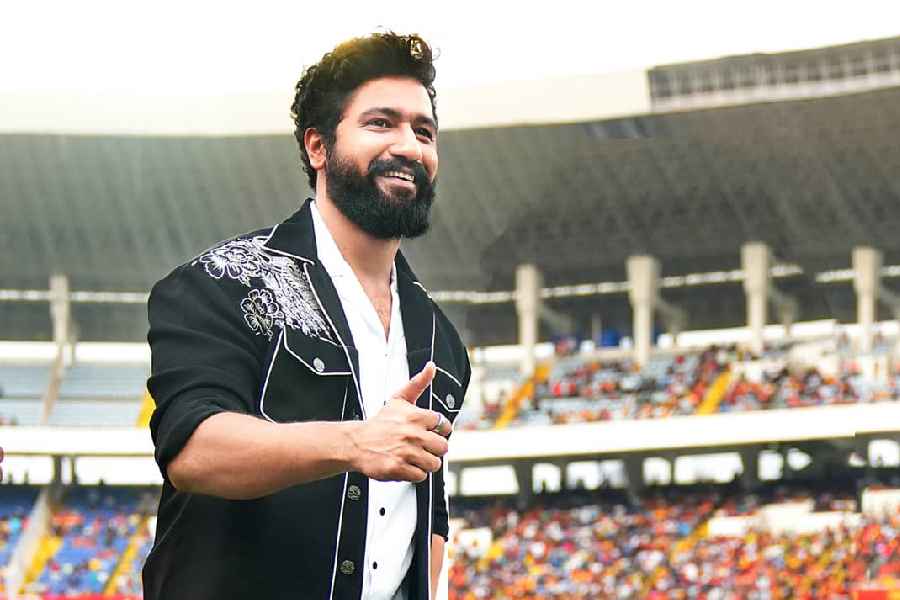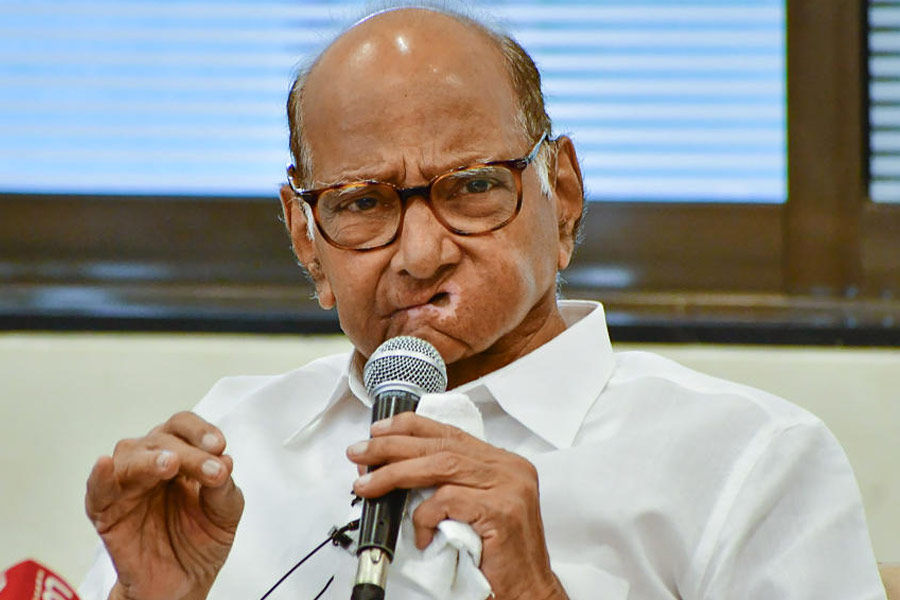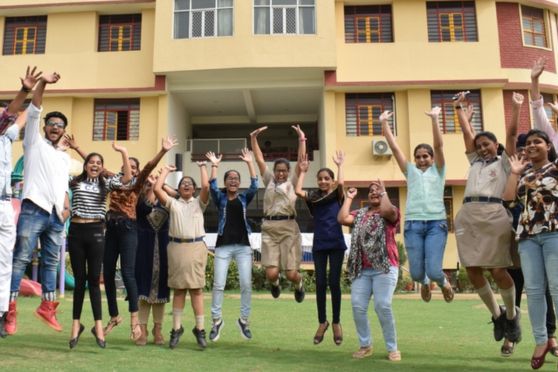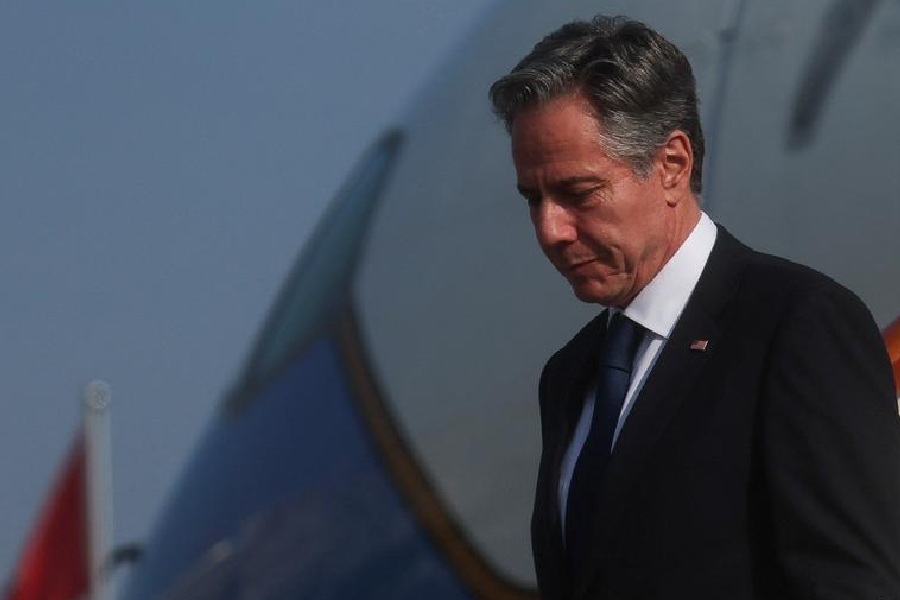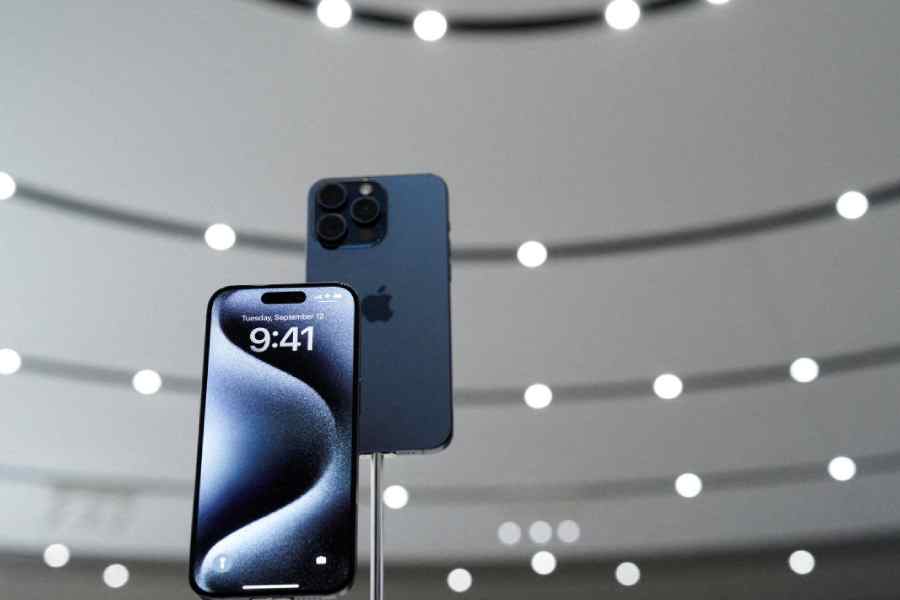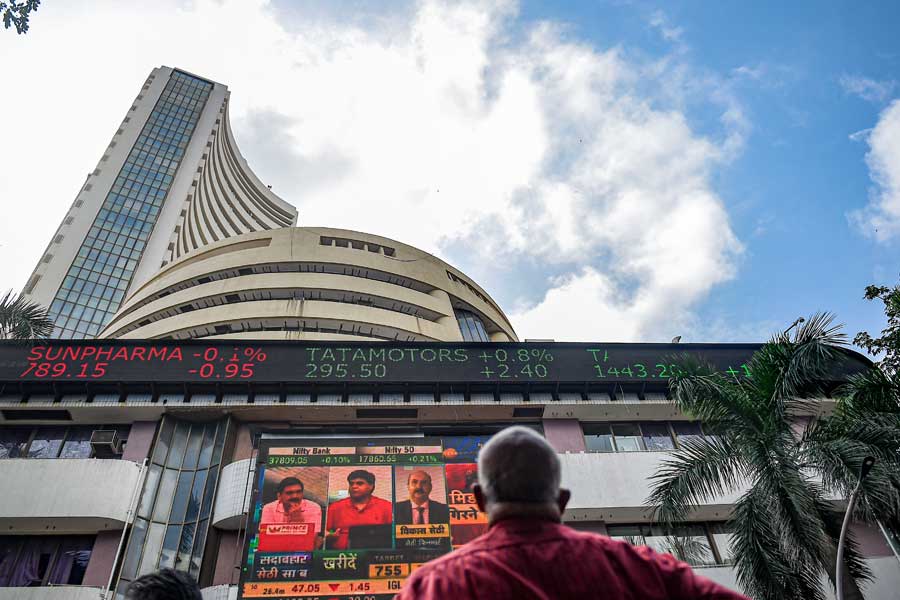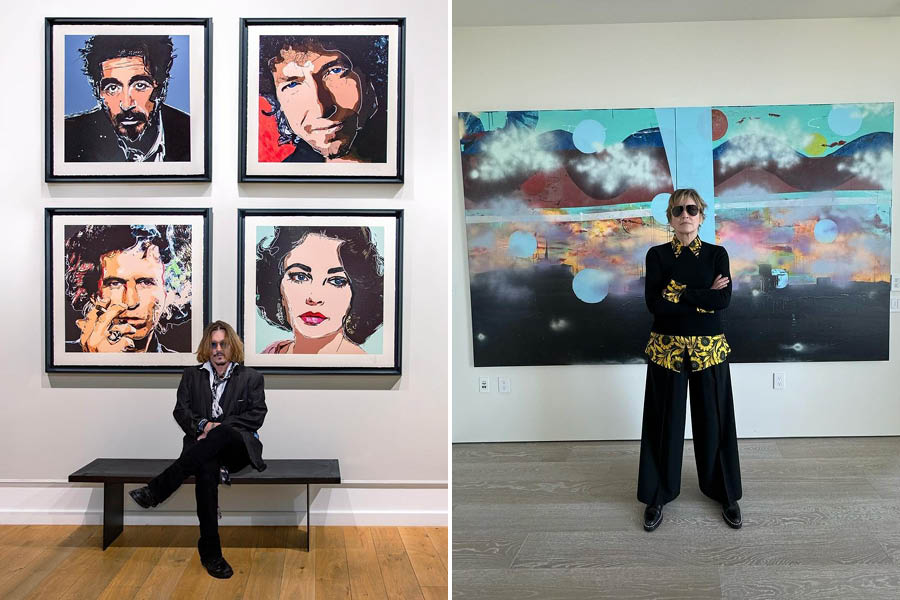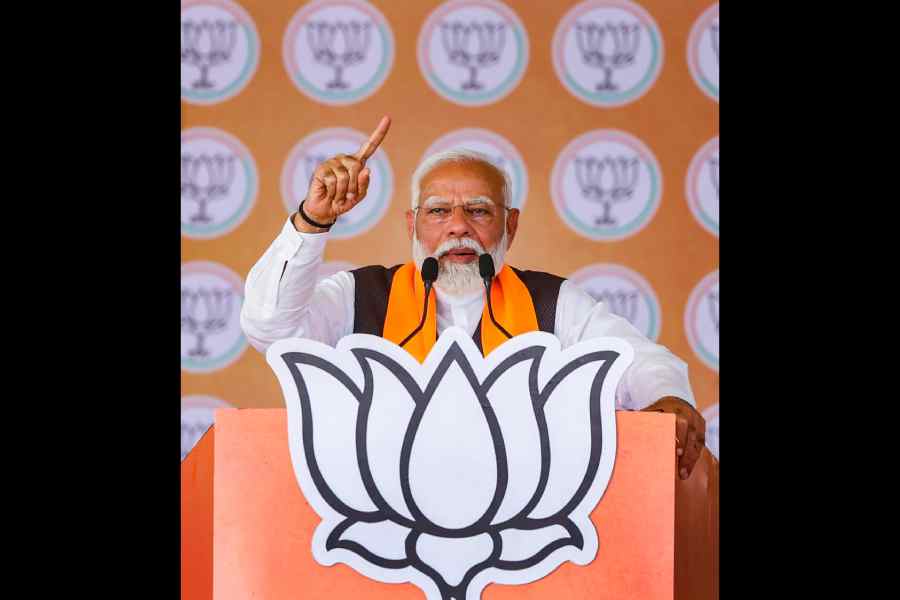On Saturday, Vicky Kaushal was in Calcutta to lend support to the Durand Cup tie between East Bengal FC and Mohun Bagan SG. The actor — whose turn as the formidable Sam Manekshaw in the biopic Sam Bahadur will release later this year — has had a close association with the Armed Forces, having already made a mark with his film Uri a few years ago.
Before he made his way to Salt Lake Stadium on Saturday evening, Vicky — fresh from the success of his film Zara Hatke Zara Bachke — engaged in an exclusive interaction with t2 about his football favourites, playing Sam Manekshaw, his definition of success and what home means to him now.
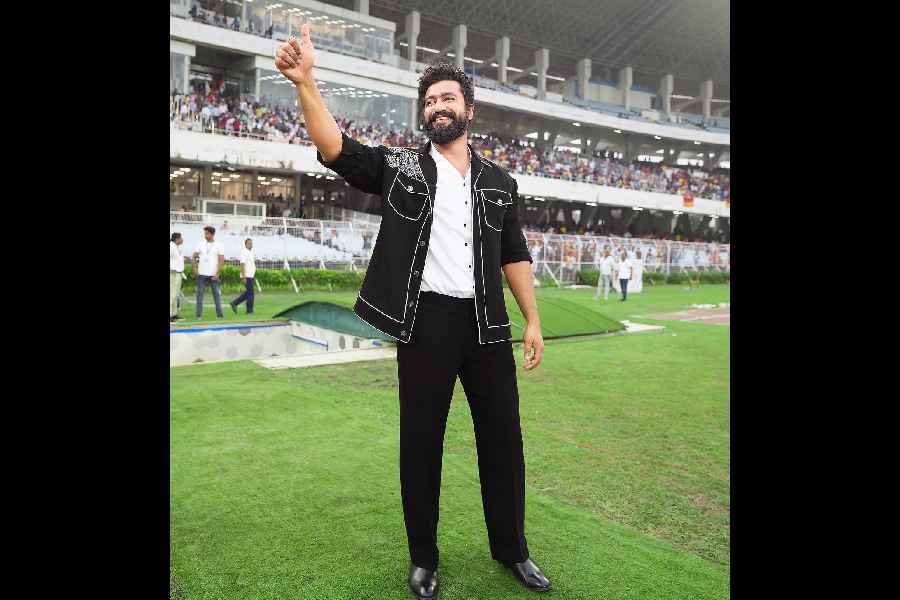
Vicky Kaushal at the Durand Cup tie between East Bengal FC and Mohun Bagan SG at Salt Lake Stadium on Saturday
You are almost often in Calcutta on a whirlwind trip which leaves you with very little time to experience much of the city. When you do, like when you shot a portion of Sam Bahadur here, what do you like about the city?
What I feel the saddest about being in Calcutta today is that I won’t be able to eat the things I love the most. That’s because of the strict diet that I am on. Eating is definitely one of my favourite things to do in the city. The last time I was here to shoot Sam Bahadur, with Meghna (Gulzar, director) and the whole team of RSVP (Movies, producer), that was one thing all of us were most excited about. We would work really hard, but also keep an eye on stuff like: ‘Aaj ka lunch kahan se aa raha hain?’ And after pack-up, it would be like: ‘Khana kahan pe khana hain?’ (Laughs)
Calcutta is that one place where there is always so much to discover in terms of food. The last time I was here, it was only about: ‘Yahan ka biryani famous hain, wahan ka rasgulla bahut achha hain’. This time, there won’t be any of that. But I will get to meet a lot of officials from the Indian Army today and I am really looking forward to that.
Is football one of your favourite sports?
One of the top ones, for sure. Of course, I have been the quintessential Indian kid who has played gully cricket all his life. Football was best played in the rain and you know how the rains in Mumbai are... when it rains, then it really rains! I have never played football for school or college, but have had a lot of fun playing it in the rain. That, for me, is the nostalgic element related to football.
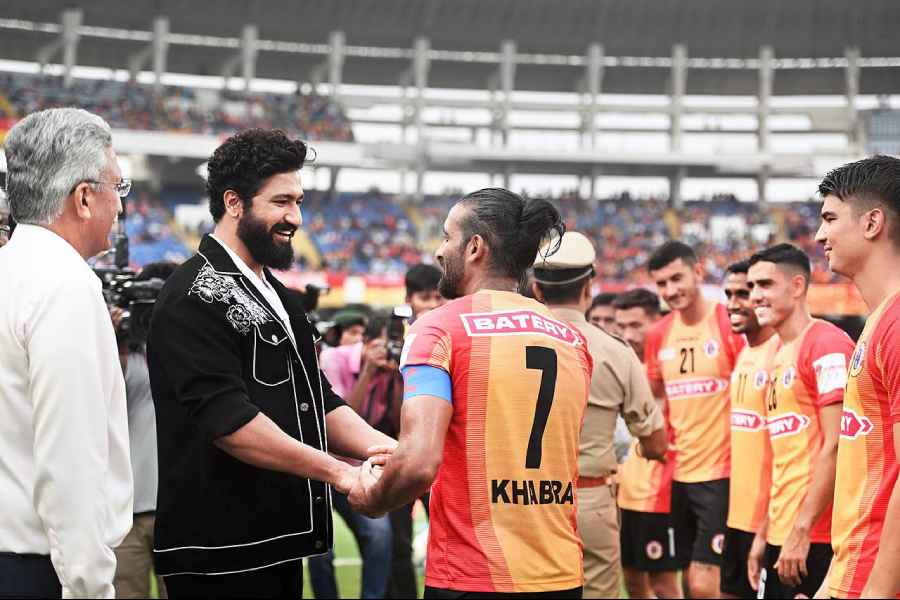
Vicky interacting with players at the stadium
It’s such a huge honour for me to be associated with the Durand Cup for the first time. When I told my father (Sham Kaushal) that I was coming to Calcutta for the Durand Cup, he was really excited because he knows its legacy. And I am also excited about watching a live match between Mohun Bagan and East Bengal, which is as iconic as it can get when it comes to football in India. There is the expectation of about 55,000-70,000 people in the stadium today and they will be clearly divided into the East Bengal gang and the Mohun Bagan gang. Sitting with the Amy personnel and watching the match is something that I will always remember.
Do you get a chance to play football now?
No, unfortunately, mauka nahin milta hain. I am also not very good at playing it, I am more of a fan.
Who is your favourite player? Do you support a particular international club?
I love Sunil Chhetri. I love him as a player and I love watching his interviews. For me, he is one of those who represents great passion for what he does. I have never got a chance to meet him, but whenever I watch him on TV — I recently saw a video where he spoke about how he spends his whole day — I find him really admirable and have huge respect for him.
I enjoy watching the soccer World Cup whenever it happens. I used to be a big fan of Manchester United when I was in college but then I lost track of the EPL (English Premiere League). In the middle, I was following (FC) Barcelona because I am a huge (Lionel) Messi fan. It’s such a joy to watch Messi play.
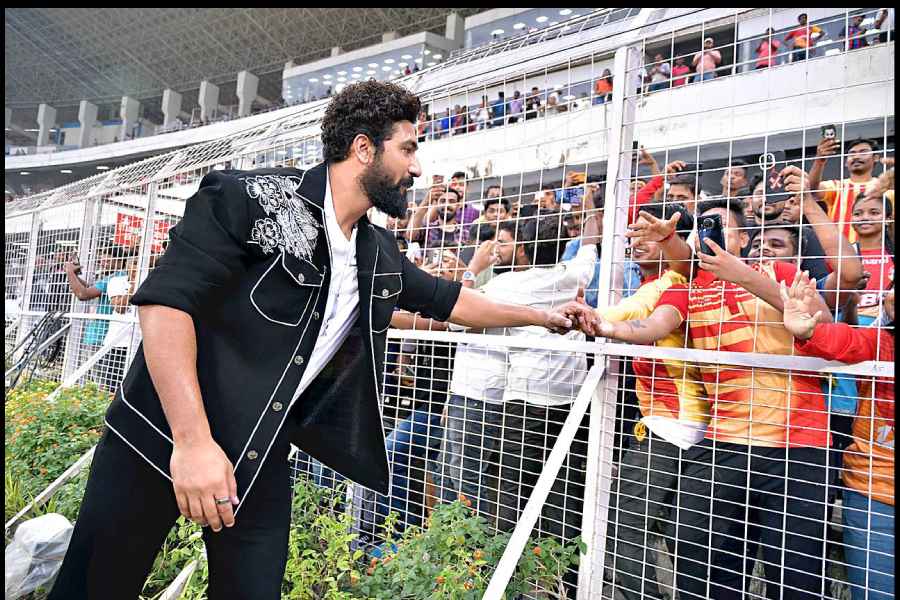
Vicky interacting with spectators at the stadium
What was the experience like shooting the video for Bhide, the theme song of the Durand Cup?
It was amazing! We shot it in Navy Nagar in Mumbai and it’s such a great song to be a part of. It’s written by Amitabh Bhattacharya and sung by Arijit (Singh) and Divine. We have had some of the most incredible talents working on it and just to get featured in the video has been an honour for me.
What have been your biggest learnings from interacting with the Indian Army, especially while making Sam Bahadur?
Just the way they lead their lives. Their character, their leadership quality, their discipline... everything. Doing both Uri and Sam Bahadur made me interact a lot with Army men, both formally and informally. I have been to a lot of cantonment areas, and stayed with them... we shot parts of Sam Bahadur at Fort William here and we were in the cantonment area as well.
Whenever I interact with Army people and even their families, I am struck by the clarity in their thoughts as well as their etiquette. They really are a class apart. They do enjoy life as well, but their discipline and the way they live life are very inspiring to me.
I once told a Brigadier that in my growing-up years if I had the influence of or if I knew how one can get into the Army, I would have really liked to join. Whenever I am around Army men, I am literally like a kid in a candy store (smiles). They are full of fascinating stories and one gets to realise that there is so much to be grateful about because of them. That’s what also drives me to do films that are based on the Army because I feel that as an artiste, that’s the least I can do... share some amazing stories about them. I am always excited when I get to wear an Army uniform in a film.
Your debut film Masaan turned eight on July 24. How do you look back at that film and at Vicky eight years ago?
I feel like I was a child back then (laughs). There was a very pure energy, I didn’t know much about the industry and how it works, or what one needed to do during promotions. For us, making Masaan had a very college project-making energy to it. And then, Cannes (Film Festival) se achha response aa gaya and we concentrated on releasing it in India. That was our first release and such a big moment for me and Shweta (Tripathi).

With Katrina Kaif
Now when I look back, I feel that it’s God’s blessings that have brought me this far. I have learnt so much, met such nice people, and got to work on some amazing projects... it’s been a journey that has given me the motivation to just keep at it, to keep moving ahead.
At that time when I came to Calcutta to promote Masaan and had met you, I had never thought that such good things would happen in the years to come. But it did happen, and I am grateful to God. I just have to carry on and see what’s in store ahead.
God’s blessings and a lot of hard work...
Yes, we do work hard but when we are making a film, it doesn’t feel like it’s hard work because we are doing what we love. In retrospect, one does think: ‘Haan yaar, iss mein bahut mehnat ki thi’, but when one is in the middle of the process, then one is grateful for the opportunity as well as for the fun that the experience of making a film brings in.
In the beginning, when one has less work, you don’t care how hard you work because you just want to make the best of the opportunity. I would work for 14-16 hours a day and would really enjoy it. That is something that I really want to always keep with me. Whether I am 10 films old or 50 films old, when I am on set, I always want to feel: ‘Yaar, I want to keep enjoying this process’.
How much does the bonafide success of Zara Hatke Zara Bachke, which was released at a time when films weren’t doing well in theatres, give you the confidence that you are making the right choices in your career?
It was the first time that the success of a film of mine didn’t feel personal to me.
It felt like a victory for the entire ecosystem, for the film industry as a whole. That’s because we were living in a time when most were not thinking: ‘Meri film chal jaaye’. It was more of: ‘Yaar, bas filmein chal jaaye’. Everyone was focused on getting audiences back into theatres. At the end of the day, we make films for them.
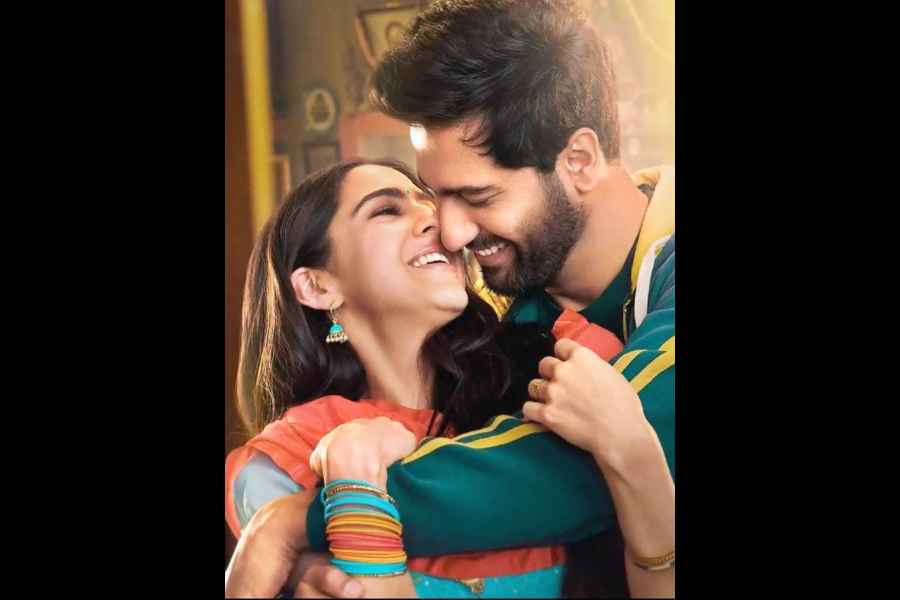
With Sara Ali Khan in Zara Hatke Zara Bachke
At that time, there was talk about how only big-scale action films were working in theatres. And then we had a mid-budget film like Zara Hatke Zara Bachke, which we believed people would relate to and we followed our gut. Hats off to Dinesh Vijan as a producer for backing this film and taking it to theatres. For the film to eventually resonate with the viewer and for audiences to come in droves to theatres felt like such a huge victory for the entire industry. We all felt: ‘Okay, people can warm to a mid-budget film as well. It depends on the story and the quality of film-making’.
This success gave a lot of confidence to the industry ki aisi filmein hum laa sakte hain.
Not every studio can make high-end spectacle films. Filmon ka chalna zaroori hain taaki har tarah ki film banti rahe.
Script and director are, of course, paramount. Has the way in which you pick and choose your parts changed now from what it was even a few years ago?
Primarily, it’s always the script. And then, of course, a film is the director’s medium and the director is very important. There have been scripts that I have felt an instant connection with and then sometimes you sit and think: ‘Mujhe romantic film karni hain’ or ‘I hope I get an action script or a comedy’. That wishlist never ends. Sometimes, you come across scripts or genres which have not been at the top of your mind, but they are so compelling that you know that you have to be a part of them. The stories speak to me or the characters are really, really fresh or it involves a director I always wanted to act with. All these things put together are what really appeal to me.
But most of the time, for me, it’s an instinctive call than a well-calculated one of what will work and what won’t because woh aajkal kisi ko nahin pata. I just try and follow my heart. When I read a script, I should feel that this is a story that I want to watch myself. And when I immediately want to start working on a film, I know that the feel of the film is right. For me, it’s more a call from the heart than from the brain.
You have managed to build a diverse filmography in as little as eight years. Would you be able to pick one turning point or would there be several?
Oh, there are so many! Masaan brought me into the industry... it didn’t reach out to a very wide audience but because of OTT now, the film still keeps growing. At that time, I didn’t get a big-scale launch as a hero or a leading man but it was a film that made an impression on the industry and brought me to the notice of film-makers. And so my first film itself was a big turning point for me.
And then I have had films like Sanju and Raazi. Uri, of course, was a big shift for me. With the huge box-office numbers (approximately Rs 360-crore worldwide), Uri gave producers and film-makers confidence in me. In terms of economics, it was a big turning point for me. Getting so much love from the audience, from the Army, was very special to me.
Just in terms of challenge, where would you place Sam Bahadur?
It won’t be an exaggeration to say that this is the role that has made me the most nervous till now, but also the most excited. I have experienced extreme emotions while making Sam Bahadur. I always knew that I had a mammoth task in terms of living up to the stature of the man (Field Marshal Sam Manekshaw) for what he is remembered for — his leadership qualities, his clarity of thinking and his flamboyance and flair.
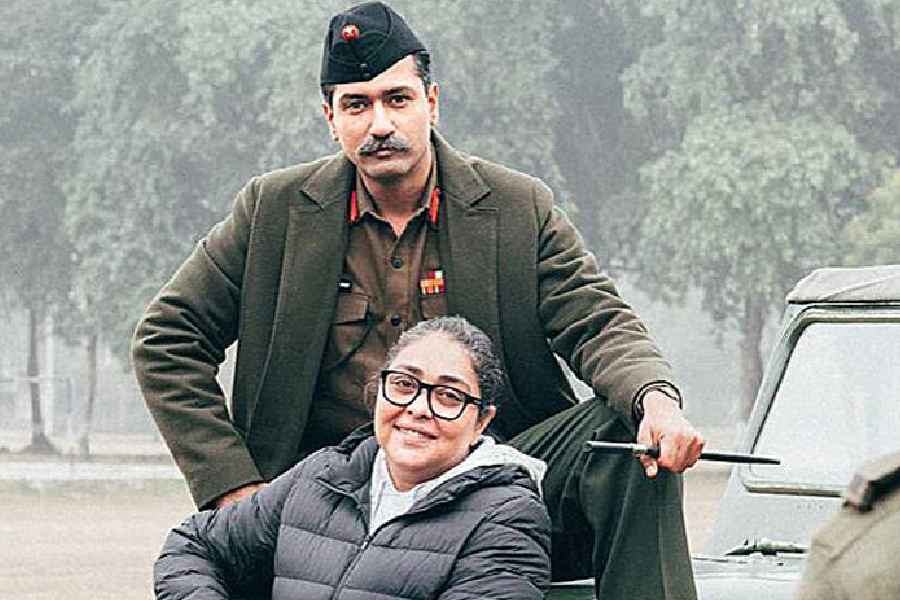
Vicky as Sam Manekshaw with director Meghna Gulzar on the sets of Sam Bahadur
Picking on a certain body language would probably be the easiest thing to do for Sam Manekshaw. Of course, I had to do that but the more difficult part was to imbibe his spirit. There was so much for me to learn from him while I was trying to play him.
Sam Bahadur has probably been the most enriching experience for me as an actor. This is a film where I feel I got to grow more as a human being than as an actor. The more I would deep-dive into thinking how he thought and doing what he did, it made me feel: ‘Wow, what a man! If I could even be 10 per cent of what he was, it would be great!’ To get the opportunity to play him was a huge responsibility. It made me very nervous, as I said, but at the same time, I felt it was such a blessing. For that, I am grateful to Meghna and to Ronnie Screwvala (head honcho of RSVP Movies) for having so much trust in me.
Like Sam Manekshaw, have you learnt something from almost all the roles that you play?
Oh, a hundred per cent! That’s one thing that I truly love about my profession. That my perspective about things keeps expanding, and there is always something that I keep learning. It could be what to do and how to do it... or it could be what not to do and how not to do it. In both ways, it’s my gain as both an artiste and a human being.
And playing a character like Sam Manekshaw is a different story altogether. I could never think of reacting or responding to a situation in the manner in which he did. But yes, every role — on a physical, mental and emotional level — impacts me. Something may come up in my life and immediately my mind goes into thinking: ‘How would that guy I played react to this?’ That happened when I did Masaan and when I came back to Mumbai, I could feel that shift within me. I started feeling differently about different people because my perspective on success changed after that. That’s because I had lived the character of a person (Deepak) for whom success was just to go from Benaras to Allahabad and get a job opportunity. And that was the biggest thing for him considering where he started from. So Masaan taught me that it’s not only about where you reach, it’s also about where you start from.
Today, I see people coming from outside and working in Mumbai and I realise that perhaps their back story and their struggle is much richer than mine. I believe that every character one plays makes one a better person in life.
We have discussed this in the past, but what does home mean to you now, especially at the end of a long day of work?
If it’s a really long day at work, then I just go to sleep! That’s my best way to unwind. Otherwise, it’s just about spending time with my wife (Katrina Kaif), sharing stories of my whole day with her and asking her about her day. We love watching a movie together at home. I am a huge Peaky Blinders fan and that’s what we are catching up on. That’s what home is. Not work, not a hectic schedule... it’s just shanti. The simpler things of life.

